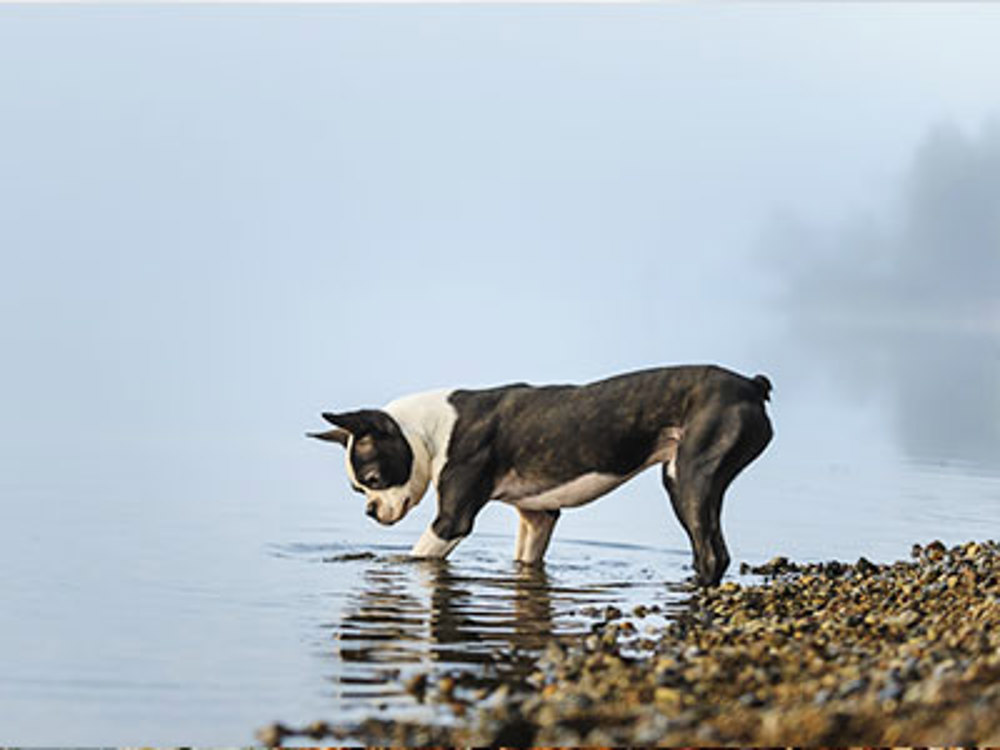
Why do some brachycephalic dogs have problems giving birth?
Birthing difficulties (dystocia) are common in some extremely brachycephalic breeds due to the size of the puppies being born compared with the size of the mother's pelvis. Physical features, such as larger heads, result in puppies with heads too large to pass through the relatively narrow pelvises of the bitch without medical or surgical intervention.
The statistics of increased risk
Substantially increased risks of birthing difficulties are seen in some brachycephalic breeds compared with crossbreed bitches:
- French Bulldog: 15.9 times more likely
- Boston Terrier: 12.9 times more likely
- Pug: 11.3 times more likely
Without intervention, birthing difficulties can lead to the death of the puppies and often of the mother. Consequently, caesarean section rates are high in these breeds, up to 86% in the Bulldog. Some breeders opt to have ‘elective’ caesareans in their bitches to avoid inevitable problems during birthing.
The dangers of birthing problems
Dystocia may lead to death of the unborn puppies and their mother, so breeders should watch out for signs that birth is not progressing normally in their pregnant bitch.
The three stages of normal labour
A normal labour has three stages:
- The body prepares itself for birth with the cervix relaxing and dilating. During this stage the bitch may be restless and try to nest
- The uterine fluids are lost, and progressively more vigorous straining occurs, leading to the birth of puppies. Puppies are normally delivered with gaps of 20-60 minutes, but may vary between dogs and breeds
- The foetal membranes are delivered. This stage can alternate with the second stage, as membranes are sometimes delivered with or between puppies
When to be concerned
In some cases of dystocia, stage two never starts and dystocia is diagnosed once a dog is recognised not to have progressed from stage one to stage two after about 24 hours.
Other signs may include:
- prolonged strong contractions without delivery of offspring
- long gaps between the delivery of offspring (>2 hours)
- prolonged gestation period
- discharge from the vagina before any pups are born that may be black, green, or red discharge and indicates placental separation
- foetal distress
What should I do if my dog shows signs of birthing problems?
If your bitch shows any signs of birthing difficulties, you should contact a vet immediately to determine the next steps in managing the birthing process.
How will the vet help?
As dystocia is an emergency, you may have to take your bitch to the vet immediately for treatment (this may require an out-of-hours emergency visit). The vet may palpate your dog's vaginal canal and cervix and take blood samples to test a variety of measures. Your vet may x-ray your bitch or perform an ultrasound to approximate the number, size and location of the foetuses and determine whether the puppies are in distress.
Will a caesarean be required?
In some cases your vet may be able to give medical treatment to stimulate birth or may be able to manually reposition and deliver puppies; however, if birthing difficulties are due to feto-pelvic disproportion then caesarean section is likely required to avoid suffering and death of mother and puppies.
Reporting C-sections to us
Please note: vets and breeders are requested to report caesareans to The Kennel Club.
Find out more about brachycephalic health and welfare issues
Article author
This article was written by Dr. Rowena Packer from the Royal Veterinary College who has given The Kennel Club kind permission to replicate it. Dr. Rowena Packer is a Research Fellow at the Royal Veterinary College. Her research interests include many areas of canine inherited disease including brachycephalic health and canine epilepsy.
Think your dog may be affected?
If you're worried about your dog's health, always contact your vet immediately!
We're not a veterinary organisation and so we can't give veterinary advice, but if you're worried about any of the issues raised in this article, please contact your local vet practice for further information.
Find a vet near you
If you're looking for a vet practice near you, why not visit the Royal College of Veterinary Surgeons' Find a vet page.
